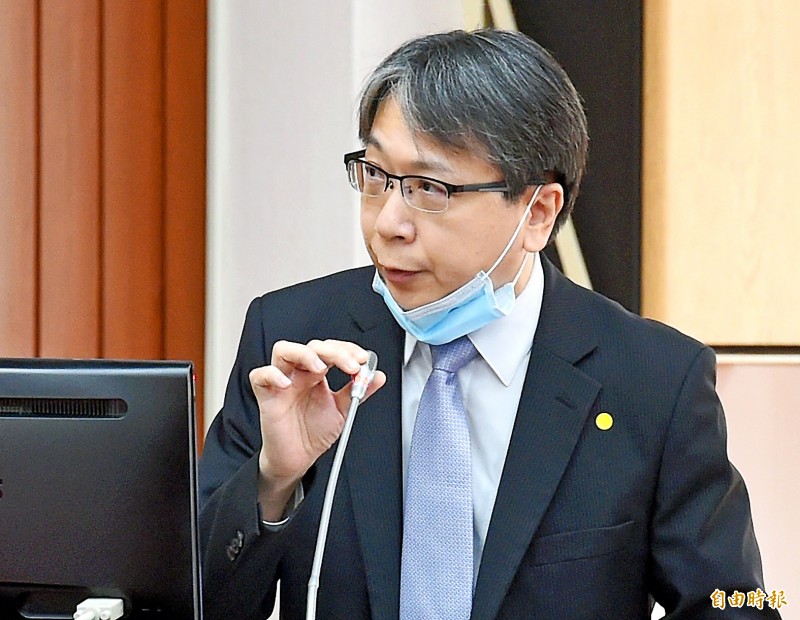《TAIPEI TIMES》 NSC warns on impact of HK law

National Security Council Deputy Secretary-General Tsai Ming-yen speaks at a meeting of the legislature’s Finance Committee in Taipei yesterday. Photo: Chu Pei-hsiung, Taipei Times
IMPLICATIONS: The council is concerned the proposed legislation could affect the personal freedom of Taiwanese, such as NGO workers or businesspeople
By Chen Yu-fu and Dennis Xie / Staff reporter, with staff writer
The Chinese government’s proposed national security law for Hong Kong could jeopardize the right to personal freedom of Taiwanese in the region, National Security Council (NSC) Deputy Secretary-General Tsai Ming-yen (蔡明彥) said yesterday.
China’s National People’s Congress on Friday last week unveiled a proposal to enact a Hong Kong security law.
The proposed “enforcement mechanisms,” which are expected to ban treason, subversion and sedition, are being introduced in response to last year’s pro-democracy protests in the territory.
If Beijing passes the controversial law, it would have broken its promise to respect the territory’s autonomy under its “one country, two systems” model, Tsai said in response to a question from Democratic Progressive Party (DPP) Legislator Wu Yu-chin (吳玉琴) at a meeting of the legislature’s Finance Committee in Taipei.
The council is concerned that the law could affect the personal freedom of Taiwanese, such as businesspeople or workers at non-governmental organizations, when they engage in interviews or other exchanges in the region, Tsai said.
The legislation would overturn the special status — both legally and politically — that China has assigned to Hong Kong as a Special Administrative Region, he said.
Asked by Chinese Nationalist Party (KMT) Legislator Lai Shyh-bao (賴士葆) whether the proposed law would impact Hong Kong’s financial markets and lead to capital flowing to Taiwan, Tsai said that it could have that effect.
As investors are based in the territory due to its special status, passage of the proposed legislation could result in the flight of foreign capital, as well as talent, Tsai said, adding that the council would pay close attention to developments.
The council would also need to review whether capital investments from Hong Kong would need to be redefined as Chinese capital, Tsai said in response to a query from DPP Legislator Kao Chia-yu (高嘉瑜).
Wu urged the government to respond with caution to the proposed law — which would give the Hong Kong government the power to detain or incarcerate individuals on subversion or “other unwarranted charges” — to safeguard the rights of Taiwanese in the territory.
Beijing has never given up on annexing Taiwan, she said, adding that it has waged several “wars” against the nation, including “public opinion and legal warfare.”
Taiwan every month is subject to about 30 million cyberattacks likely orchestrated by the Chinese Communist Party, and although the interception rate is as high as 99.99 percent, the 0.01 percent not intercepted could be a loophole, she said, citing Executive Yuan data.
From the increasing and intensified number of cyberattacks on Taiwan, it is clear that Beijing has created a “nationwide cyberarmy,” Tsai said.
The council would stay abreast of cybersecurity developments in Taiwan and other nations to ensure the best defensive policies are implemented when required, he said.
Additional reporting by CNA
新聞來源:TAIPEI TIMES











